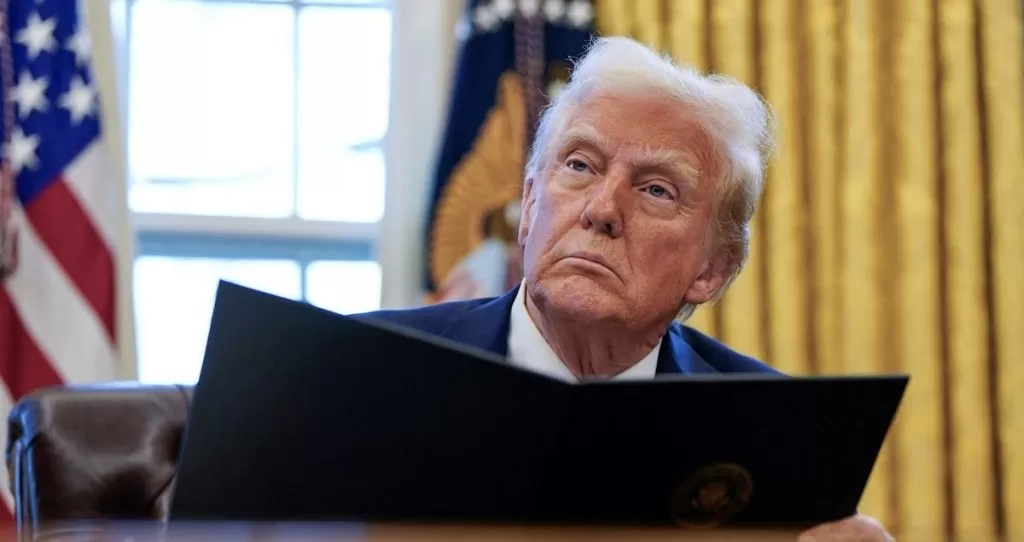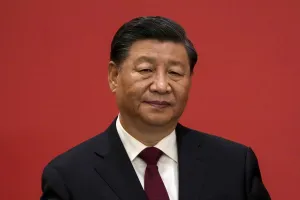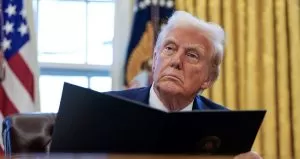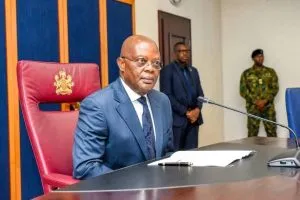Trump and Bukele Stand Firm: Maryland Man Wrongly Deported Will Not Return to U.S.

Washington, D.C. – In a high-profile joint meeting held in the Oval Office on April 14, 2025, President Donald Trump and El Salvador’s President Nayib Bukele took a resolute stance on the case of Kilmar Abrego Garcia, a Maryland man who was mistakenly deported to El Salvador. The leaders made it clear that Garcia, whose deportation has sparked legal and political controversy, will not be returned to the United States, despite a recent Supreme Court ruling mandating efforts to facilitate his return.
The case of Kilmar Abrego Garcia, a 35-year-old resident of Silver Spring, Maryland, has drawn significant attention following his deportation in January 2025. Garcia, who had lived in the U.S. since fleeing El Salvador as a teenager in 2004, was protected under a 2019 federal court order that barred his removal due to credible fears of persecution by gangs in his home country. However, an administrative error by U.S. Immigration and Customs Enforcement (ICE) led to his deportation, prompting a legal battle that culminated in a U.S. Supreme Court decision on April 10, 2025. The court ruled that the Trump administration must “take all reasonable steps” to facilitate Garcia’s return, citing the violation of his due process rights.
During the Oval Office meeting, President Bukele dismissed the possibility of returning Garcia to the U.S., questioning the logistics of such an action. “How am I going to return him? By smuggling him across the border?” Bukele remarked, calling the suggestion “preposterous.” He emphasized El Salvador’s sovereignty, asserting that Garcia, now in Salvadoran custody, is subject to the laws of his country. Bukele’s comments underscored his administration’s broader policy of maintaining strict control over migration and security matters, aligning with his domestic agenda of cracking down on gang activity.
President Trump echoed Bukele’s position, signaling his administration’s intent to prioritize national sovereignty and immigration enforcement over complying with the Supreme Court’s directive. Joined by Attorney General Pam Bondi, Trump argued that the U.S. cannot compel El Salvador to return Garcia. “El Salvador is a sovereign nation, and they have custody of this individual,” Bondi stated during the meeting. “We respect their authority, just as we expect respect for ours.”
The Trump administration has repeatedly characterized Garcia as a member of the MS-13 gang, a claim that has been central to their justification for his deportation. However, Garcia’s legal team and family vehemently deny these allegations, asserting that he has no criminal record in the U.S. or El Salvador. They argue that Garcia was targeted due to his Salvadoran heritage and tattoos, which ICE officials allegedly misinterpreted as gang affiliations. “Kilmar is not a gang member. He’s a hardworking man who built a life in Maryland,” said his attorney, Maria Delgado, in a statement following the meeting. “This is a miscarriage of justice, and the administration is doubling down on a lie.”
The controversy has reignited debates over U.S. immigration policy, particularly regarding the treatment of individuals with protected status. Garcia had been granted temporary relief from deportation under a federal injunction tied to a class-action lawsuit representing Salvadorans facing similar threats. His case has drawn comparisons to past instances of erroneous deportations, raising questions about accountability within ICE and the Department of Homeland Security.
Critics of the Trump administration’s stance argue that refusing to comply with the Supreme Court’s ruling sets a dangerous precedent. “The court was clear: the government has an obligation to fix this mistake,” said Senator Maria Cortez, a Maryland Democrat who has championed Garcia’s cause. “By siding with Bukele’s defiance, President Trump is undermining the rule of law and abandoning a man who was supposed to be protected.”
On the other hand, supporters of Trump and Bukele view the decision as a necessary assertion of national sovereignty and a rejection of judicial overreach. “The Supreme Court can’t dictate what another country does with its citizens,” said conservative commentator Laura Hensley on X. “Trump and Bukele are right to stand their ground.”
For Garcia’s family, the outcome of the meeting has been devastating. His wife, Ana Morales, a U.S. citizen, and their two young children remain in Maryland, uncertain about their future. “We just want Kilmar home,” Morales said in a tearful interview. “He doesn’t deserve this. We don’t deserve this.”
As the standoff continues, legal experts anticipate further challenges. Garcia’s attorneys have vowed to pursue additional litigation, potentially escalating the case to international courts if necessary. Meanwhile, the broader implications for U.S.-El Salvador relations remain unclear, though both leaders appeared united in their commitment to their respective immigration policies.
The meeting concluded with Trump praising Bukele’s leadership, calling him a “great friend” and highlighting their shared focus on border security. For now, Kilmar Abrego Garcia remains in El Salvador, his fate caught in a complex web of diplomacy, law, and politics.






